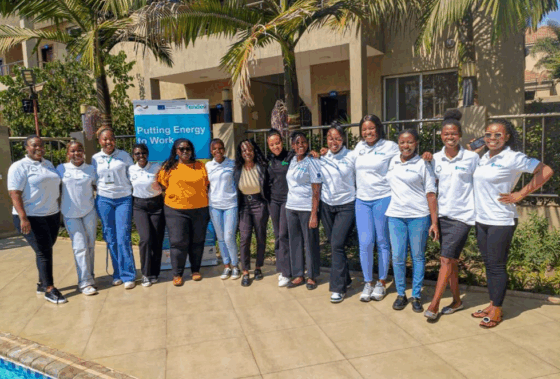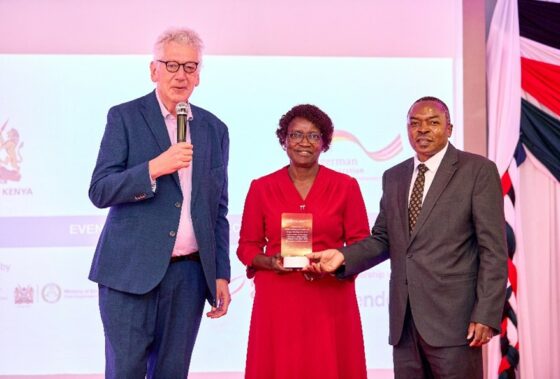Digitalisation in Healthcare: How EnDev’s Digital Solutions Enable Scaling
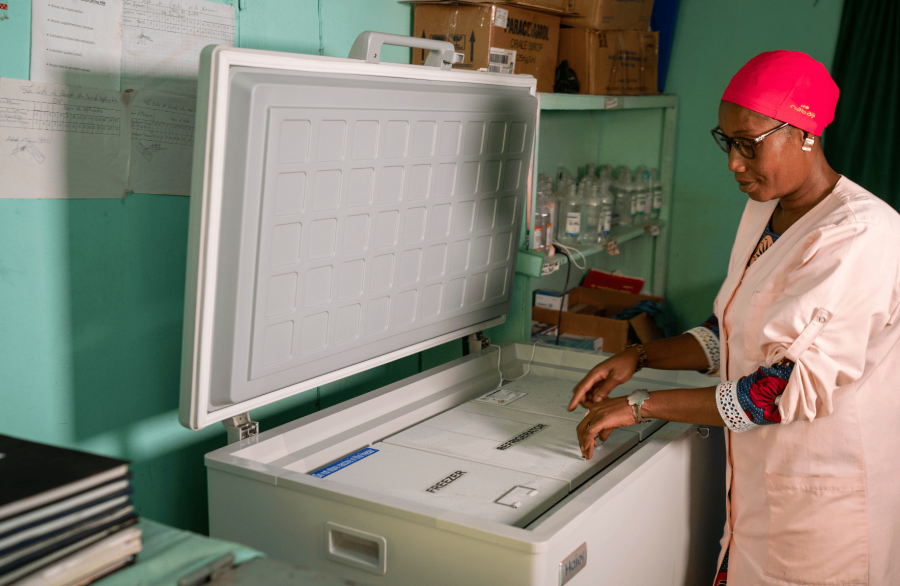
The transformative potential of digital solutions in healthcare is clearly demonstrated through EnDev’s interventions. As we delve into the impact of these innovations, it becomes apparent that digitalisation is essential for achieving scalable and sustainable improvements, not just in global health but across various sectors.
EnDev’s Energising Health initiative, supported by Germany’s special funds for vaccination logistics, is making significant strides in the healthcare sector. Active in Ethiopia, Malawi, Mali, Liberia, and Senegal, the initiative aims to enhance the cold chain for vaccines and provide basic electricity access for health facilities. The Energising Health initiative has already reached over 1,200 rural health facilities across these five countries. Notably, the centralised procurement of appliances has resulted in considerable time and cost savings, streamlining the process and maximising efficiency.
Building on this efficiency, the initiative stands out for its reliance on key digital tools to guarantee efficient and scalable implementation. This is demonstrated right from the start during the installation of appliances like vaccine refrigerators and basic solar systems in the health centres. Physically verifying numerous appliances would be impractical and expensive. Instead, EnDev employs cloud-stored photo documentation and remote monitoring to oversee progress and installation quality, enabling largely virtual verification.
The Impact of Solar Refrigeration in Rural Senegal
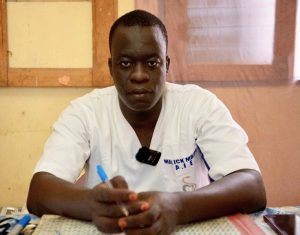 Malick Mbaye, the Head Nurse at the health post in Dayane Kadiolé, a rural area in Senegal, has witnessed a remarkable transformation in his daily operations since the introduction of solar refrigeration. Before, Malick faced significant challenges in vaccine storage. Two days prior to each vaccination campaign, he had to place orders at distant health centres – either Vélingara Ferlo, 22 km away, or Ranérou, 140 km away. Vaccines typically arrived the next day, and Malick stored them in a cooler, purchasing ice from Adia, 5 km away. This system was often inadequate, resulting in lost vaccines and delayed immunisation for children in the village.
Malick Mbaye, the Head Nurse at the health post in Dayane Kadiolé, a rural area in Senegal, has witnessed a remarkable transformation in his daily operations since the introduction of solar refrigeration. Before, Malick faced significant challenges in vaccine storage. Two days prior to each vaccination campaign, he had to place orders at distant health centres – either Vélingara Ferlo, 22 km away, or Ranérou, 140 km away. Vaccines typically arrived the next day, and Malick stored them in a cooler, purchasing ice from Adia, 5 km away. This system was often inadequate, resulting in lost vaccines and delayed immunisation for children in the village.
Since the installation of the solar-powered refrigerator, Malick’s work has become significantly easier. The reliable refrigeration ensures that vaccines are stored correctly, eliminating losses and the need for ice. Now, Malick receives a fresh batch of vaccines every month, and the improved lighting enhances the overall safety of the health post. This upgrade has not only streamlined vaccine management but also bolstered the health and safety of the community, marking a substantial improvement in healthcare delivery in Dayane Kadiolé.
How it works: digitalisation for verfication
Here’s how it works: Installers follow a photo documentation guide that includes examples of both proper and improper installations. After the installation is completed at each site, the installer takes photos from specific angles according to the documentation’s instructions and uploads them to a cloud. Additionally, each appliance is equipped with a small GSM communication device, which contains a SIM card. This setup allows real-time performance monitoring through live data. To ensure smooth operation and reduce downtime from unexpected equipment failures and the delays caused by fixing problems only after they occur, as well as inefficient spare parts management, EnDev uses alarm notifications via SMS/email and remote diagnostics for troubleshooting. The photo documentation and the remote monitoring show progress and quality of the installation, triggering the subsequent virtual verification process.
The verification process employs a ‘stratified random sampling’ approach. This sampling method allows the verifier to randomly select sites to be physically verified based on the complexity of the system (complex systems are verified more frequently) and the technical knowledge of the installation teams (sites installed by less experienced teams are verified more often). This approach ensures that installers cannot predict which sites will be physically verified in advance, thus improving installation quality. The virtual verification tool allows hundreds of installations to be verified in a short period of time, ensuring consistent quality and reduced costs.
Scalability potential for schools and communities
The experience of the Energising Health initiative demonstrates that the use of digital tools can facilitate quick and efficient implementation. For future projects and further scaling of energy access, a digital planning platform needs to be established, ideally hosted by the partner government and accessible to the donor community. In addition to sustainable operation and maintenance through 24/7 monitoring, such a platform will allow for accurate needs analysis, coordinated expansion of generation assets, and avoid duplication of efforts.
The scalability potential of an initiative such as Energising Health can be applied to other energy access fields, such as school or community electrification. To meet the Sustainable Development Goals set out in the 2030 Agenda, expanding digitalisation in energy access on a large scale is essential.
Solar Fridges Boosting Health Care Services in Malawi
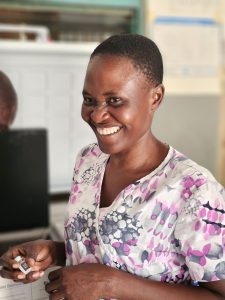 Agness Bauleni oversees a vital health facility in Lulwe Health Centre, near Malawi’s border with Mozambique. It serves over 10,000 people. Previously, unreliable refrigeration made vaccine storage a major challenge. The centre’s old gas-powered fridge was difficult to maintain and often left vaccines at risk due to frequent power cuts and fuel shortages.
Agness Bauleni oversees a vital health facility in Lulwe Health Centre, near Malawi’s border with Mozambique. It serves over 10,000 people. Previously, unreliable refrigeration made vaccine storage a major challenge. The centre’s old gas-powered fridge was difficult to maintain and often left vaccines at risk due to frequent power cuts and fuel shortages.
The installation of solar-powered fridges has significantly improved vaccine storage at Lulwe Health Centre. This upgrade has been crucial, particularly during the COVID-19 pandemic, ensuring the effectiveness of vaccines and enhancing overall healthcare services.Agness Bauleni stated, “The arrival of solar fridges has allowed us to stock various vaccines, including those for COVID-19, helping to meet vaccination needs as cases decline. When supply is low, we have to turn people away, miss targets, and fail to administer vaccines to children on time. The fridges are helping us sustain our services.”
With solar fridges now in place, Lulwe Health Centre has seen a marked improvement in its ability to maintain a steady supply of vaccines, ultimately supporting better health outcomes for the community.
More information
